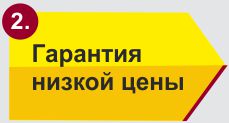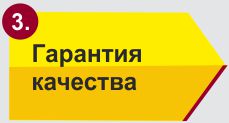
|
|
| Корзина:
|
|

|
|
|
К/р №3 по английскому
Краткое содержание работы
|
КОНТРОЛЬНАЯ РАБОТА №3 (III семестр) для студентов специальностей «Менеджмент организаций», «Управление качеством» РАБОТА С ТЕКСТОМ Selecting international managers Approaches to selection vary significantly across cultures. There are differences not on...
КОНТРОЛЬНАЯ РАБОТА №3 (III семестр)
для студентов специальностей «Менеджмент организаций», «Управление качеством»
РАБОТА С ТЕКСТОМ
Selecting international managers
Approaches to selection vary significantly across cultures. There are differences not only in the priorities that are given to technical or interpersonal capabilities, but also in the ways that candidates are tested and interviewed for the desired qualities.
In Anglo-Saxon cultures, what is generally tested is how much the individual can contribute to the tasks of the organisation. In these cultures, assessment centres, intelligence tests and measurements of competencies are the norm. In Germanic cultures, the emphasis has always been made on the quality of education in a specialist function. The recruitment process in Latin and Far Eastern cultures is very often characterised by ascertaining how well that person ‘fits in’ with the larger group. This is determined in part by the elitism of higher educational institutions, such as the "grandes ecoles” in France or the University of Tokyo in Japan, and in part by their interpersonal style and ability to network internally. If there are tests in Latin cultures, they will tend to be more about personality, communication and social skills than about the Anglo-Saxon notion of "intelligence”.
Though there are few statistical comparisons of selection practices used across cultures, one recent study provides a useful example of the impact of culture. A survey which was conducted by Shackleton and Newell compared selection methods between France and the UK. They found that there was a striking contrast in the number of interviews used in the selection process, with France resorting to more than one interview much more frequently. They also found that in the UK there was a much greater tendency to use panel interviews than in France, where one-to-one interviews are the norm. In addition, while almost 74 per cent of companies in the UK use references fr om previous employers, only 11 per cent of the companies surveyed in France used them. Furthermore, French companies rely much more on personality tests and handwriting analysis than their British counterparts.
Many organizations operating across cultures have tended to decentralise selection in order to allow for local differences in testing and for language differences, while providing a set of personal qualities or characteristics they consider important for candidates. Hewitt Associates, a US compensation and benefits consulting had difficulties extending its key selection criteria outside the USA. It is known for selecting ‘SWANs’: people who are Smart, Willing, Able and Nice. These concepts, all perfectly understandable to other Americans, can be interpreted in a different way in other cultures. For example, being able may mean being highly connected with colleagues, being sociable or being able to command respect fr om a hierarchy of subordinates, wh ereas the intended meaning is more about being technically competent, polite and relatively formal. Similarly, what is nice in one culture may be considered I or immature in another. It all depends on the cultural context. Some international companies, like Shell, Toyota, and L’Oreal, have identified very specific qualities that they consider strategically important and that support their business requirements. For example, the criteria that Shell has identified as most important in supporting its strategy include mobility and language capability. These will be more easily understood across cultures because people are either willing to relocate or not. There is less room for cultural misunderstandings with such qualities.
Упражнение 1.
Прочитайте и устно переведите весь текст.
Упражнение 2.
Определите, верны ли следующие утверждения. Исправьте неверные утверждения.
Упражнение 3.
Письменно ответьте на вопросы по содержанию текста.
Упражнение 4.
В тексте говорится о том, что для различных культур важны различные качества при подборе персонала. Сопоставьте характеристики с различными культурами.
Упражнение 5.
Текст содержит словосочетания, обозначающие методы тестирования и оценки, используемые при отборе кандидатов. Соединив слова из двух колонок, образуйте эти словосочетания.
Переведите их на русский язык.
Упражнение 6.
Найдите в тексте слова, близкие по значению слову "skill” – навык (не менее 5 слов). Составьте 3 предложения с этими словами и расскажите о своих навыках и способностях.
Упражнение 7.
Выпишите из текста предложения с определительными придаточными, содержащими относительные местоимения: "that” – 2 предложения, "which” – 1 предл., "who” – 1 предл.; союзное слово " wh ere” – 1 предл. Переведите предложения на русский язык.
Упражнение 8.
Определите тип следующего условного предложения, выписанного из текста. Преобразуйте данное предложение в оставшиеся три типа, изменив формы глаголов в главном и придаточном предложениях.
Укажите типы преобразованных условных предложений.
If there are tests in Latin cultures, they will tend to be more about personality, communication and social skills than about the Anglo-Saxon notion of "intelligence”.
Упражнение 9.
Определите видовременную форму глаголов-сказуемых в страдательном залоге в следующих частях предложений, выписанных из текста.
Упражнение 10.
Письменно переведите третий абзац.
Упражнение 11.
Дайте краткие письменные ответы на вопросы, связанные с отбором менеджеров для международных компаний.
1. What qualities and skills are important for international manager? (Write about technical skills and interpersonal skills.)
2. What are the best ways to measure or evaluate technical skills?
3. How can you measure interpersonal skills?
- Артикул:
- Файл доступен для скачивания сразу после оплаты!
Размер: 79.5Kb
- Год: 2014
|
|
|
|
|
Почему нам доверяют?

Все покупки на Рефератыч.рф абсолютно безопасны, автор получит деньги только в том случае если работа, была Вам полезна.

Мы гарантируем Вам низкие цены,
поэтому если Вы вдруг нашли где то работу дешевле, напишите нам и мы сделаем цену для Вас еще ниже. Гарантированно!

Самое важное для нас - Ваш успех на защите! Поэтому, если вдруг возникают какие-либо претензии к работе сразу пишите нам!
|
|
|
|








